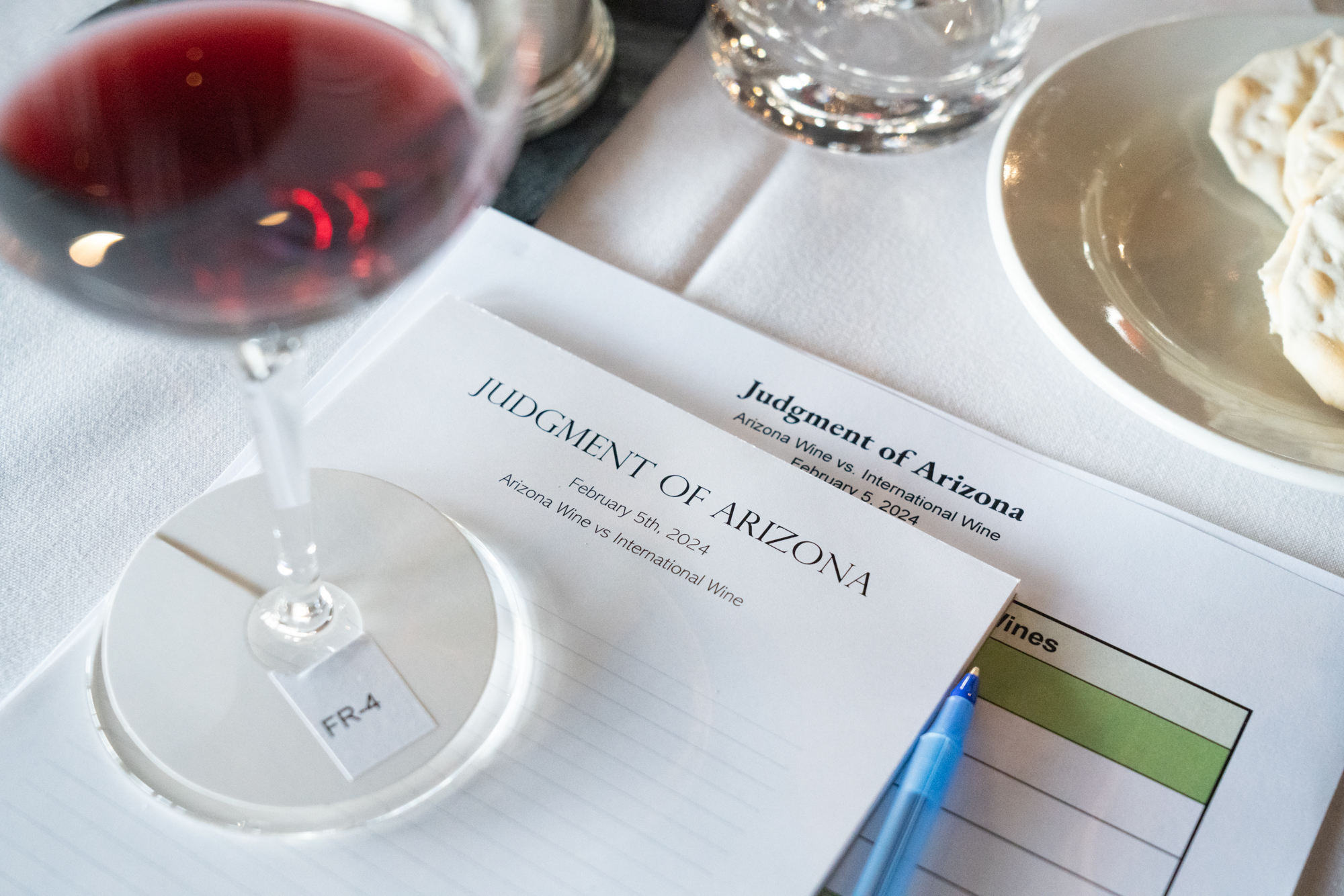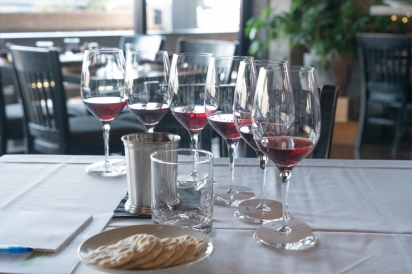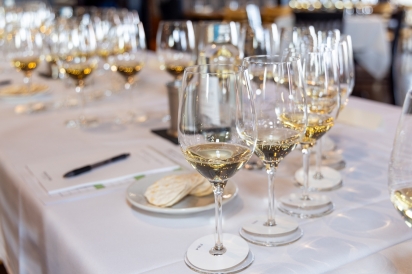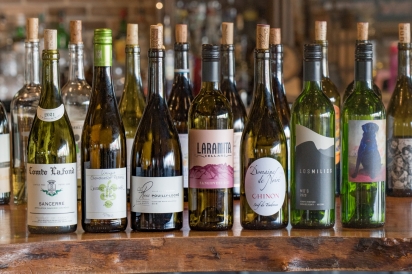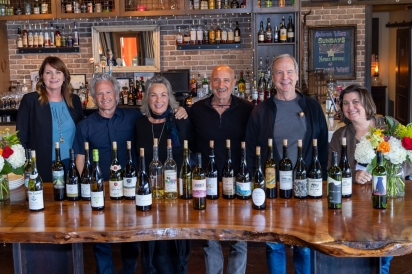The Judgement of Arizona
On a cloudy Monday in early February, Beckett’s Table co-owners Katie and Scott Stephens welcomed a group to their Arcadia neighborhood restaurant with glasses of sparkling wine. While it was only 9:30am, it was a day for celebration. A project the couple had worked on tirelessly was coming to fruition.
“I don’t think this has ever been done, certainly [not] on this scale,” Scott said.
The Judgement of Arizona” placed 12 of Arizona’s best wines in a blind tasting against 12 top international wines. The judging panel consisted of six discerning food and wine connoisseurs with storied careers in Arizona: Tim Hanni, the first American to earn Master of Wine title; Lori Hassler, chef/owner of Farish House; Michelle Jacobs, general manager of Gertrude’s Restaurant at the Desert Botanical Garden; Raini Keyser, general manager of Vinum55; Gary Spadafore, wine educator and beverage director; and Mark Tarbell of Tarbell's Restaurant and Tavern.
Although the premise was simple, the process was not. The couple spent weeks visiting AZ wineries and retail shops curating their picks for our state’s twelve best bottles, with no producer represented more than once.
Because Arizona grows a variety of both well-known and esoteric grapes, a typical one-to-one comparison like Syrah vs. Syrah didn't make sense, Scott explained. Instead, they created three separate categories for whites and reds ranging from light to medium to full-bodied—plus a category for aromatic and dry whites. Each category contained one bottle priced under $30 retail and no bottles retailing over $50 were included.
The Arizona Wine Growers Association (AWGA), a premier advocacy group for Arizona wine, gave their blessing to the event but was not involved in the wine selections, although Scott partly credits Kent Callaghan of Callaghan Vineyards and Todd Bostock of Dos Cabezas Winery for the category format idea as opposed to direct comparisons.
Before the judging began, Scott asked Callaghan, "What happens if Arizona is not selected as a best white or best red, or even a best in the category?" Callaghan replied, "Then we have a lot more work to do in the vineyard and in the winery."
Between tasting rounds, Hanni waxed poetic on the unique challenges of Arizona’s wine growing regions. “People understand it’s really hot, all the solar radiation," he said, "but don’t understand that when it gets over 95°, the grapes, the vines shut down. It’s not ripening anymore."
Tarbell added that frost is also a challenge for many grape growers. Arizona’s climate is rightly perceived as extreme, but some may be unaware it extends to both ends of the temperature range.
After three rounds of judging, the group returned to their stations and event moderator Chris Nielson prepared to announce the results.
None of the top three whites in the final round were from Arizona. The best white overall was awarded to a Sauvignon Blanc, the 2021 Comte LaFond Sancerre from France’s Loire Valley. (The other two were a German Pinot Blanc and a Chardonnay from France’s famed Burgundy region.) Caduceus Cellars, Chateau Tumbleweed and Page Springs Cellars were a few of the Arizona wineries whose white wines lost to the international contenders.
The air felt tense as Kent Callaghan's comment about “a lot more work to do” appeared to ring true. Nielson continued with the results for the reds; there was a tie which led to four wines in the final voting round. Three were from Arizona; a French Cabernet Franc was the lone international wine.
Those three Arizona reds were Laramita Cellars Sangiovese, a Graciano blend from Los Milics and a red blend from Dos Cabezas. The overall winner? Dos Cabezas 2020 Red Blend, whose label features "Nicky," a black Labrador Retriever painted by the late Leonard Bianco, father of Chris and Marco Bianco of Pizzeria Bianco fame.
Scott noted the winning wine is offered by the glass at his and many other restaurants around the state. Beating out 11 other reds—including six from around the world—it is one of Dos Cabezas’ “entry level” wines and retails for less than $25.
"Now that's a story," said Scott.


